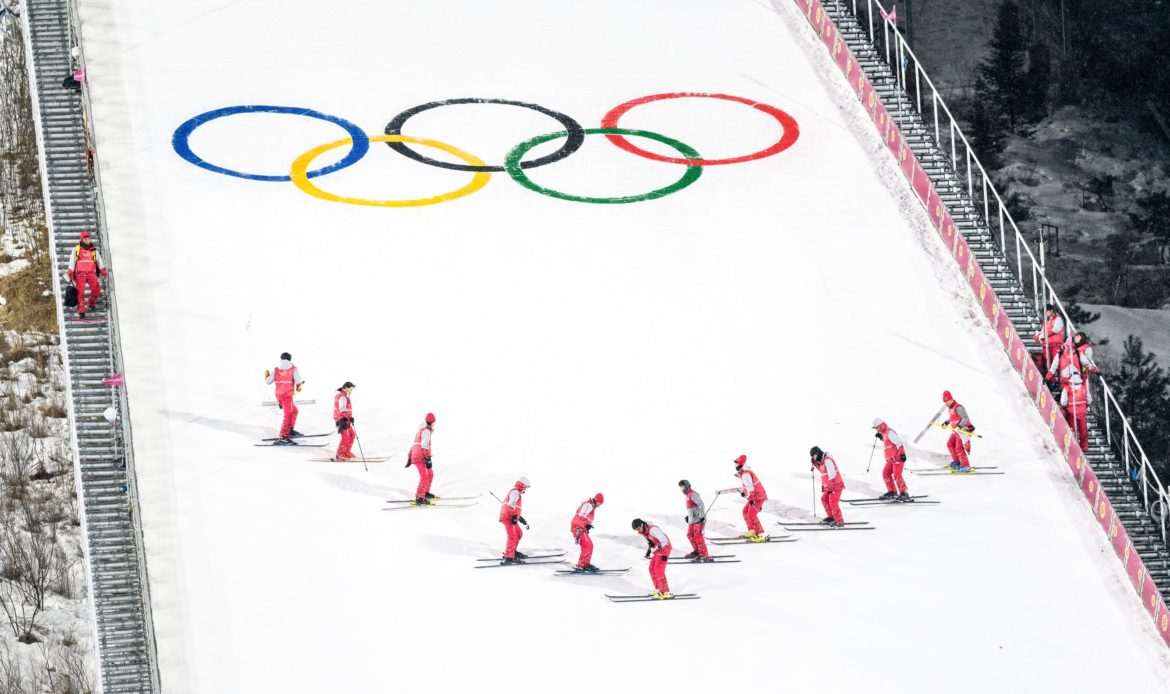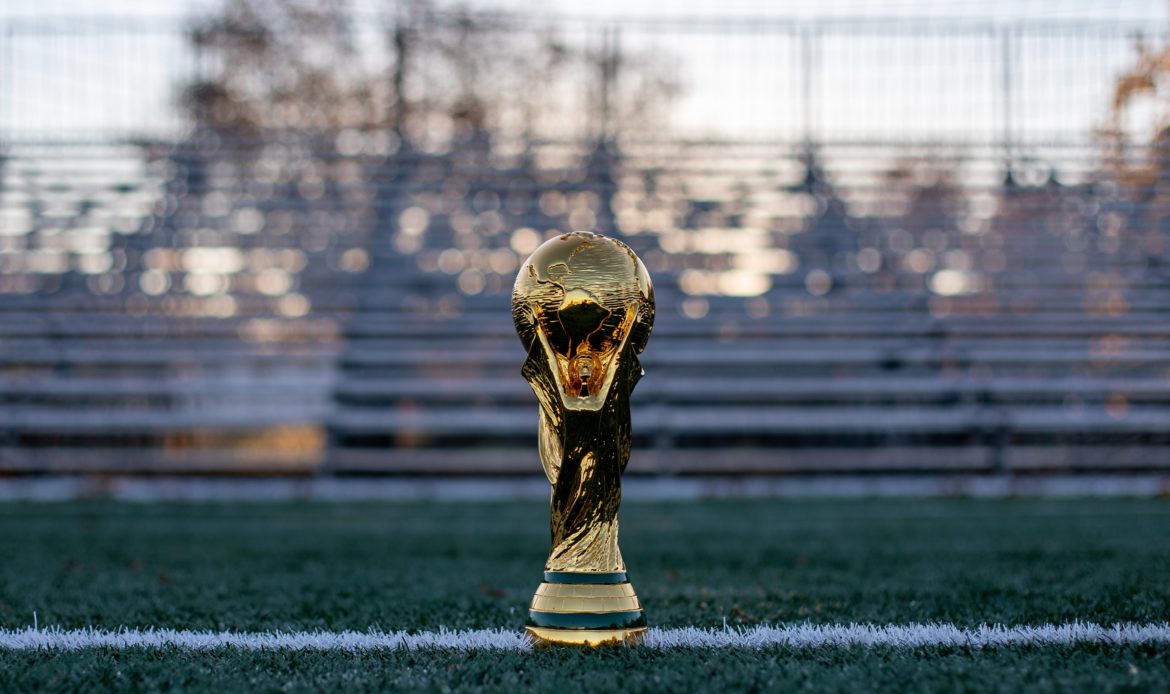From Beijing to Qatar: A Review of 2022’s Most Controversial Sports Events

“As 2022 kicks off, one can only hope this year will have more excitement than controversy.”
2021 was an entertaining year in the sports realm. To the disappointment of millions of English fans watching in Wembley, Italy won the Euro Soccer Cup Championship. The Milwaukee Bucks won their first NBA championship in fifty years, as Giannis Antetokounmpo put up historical stat lines. Tom Brady broke more records, as the Tampa Bay Buccaneers won Super Bowl LV. Unless your teams were on the losing end, these were indeed exciting times.
Yet, sports in 2021 did not lack controversy. In April, twelve major European soccer clubs announced plans to create a European Super League, matched with significant criticism from fans, players, organizations, governments, and other smaller clubs. Meanwhile, Naomi Osaka and Simone Biles attracted both criticism and praise for their decisions not to participate in their respective tournaments to prioritize their mental health. Later, in November, Chinese tennis star, Peng Shuai, was silenced days after accusing a powerful Chinese official of sexually assaulting her.
As 2022 kicks off, one can only hope this year will have more excitement than controversy.
However, already in January 2022, controversy has arisen. Novak Djokovic received worldwide attention as his unvaccinated status created issues with the Australian government. After some flip-flopping by Australian courts, Djokovic was not allowed to participate in the Australian Open and was subsequently deported. This situation will undoubtedly instigate more discussions about the treatment of other anti-vax athletes like Aaron Rodgers, or Kyrie Irving, especially as the pandemic continues to have no clear end in sight.
January 2022 was tumultuous, and is probably the biggest indicator as to why this year will provide more controversy. This includes two notable events, the first of which is the Beijing Winter Olympics.
The Olympics opening ceremony is scheduled for February 4th, with the closing ceremony set for February 20th. Over 19 days, people will have the opportunity to watch around 3,000 athletes compete in fifteen sports, ranging from skeleton to alpine skiing to ice hockey. The Winter Paralympics are also set to take place in Beijing from March 4th to 13th, with 736 athletes competing.
Yet, China’s record on human rights has made the Winter Olympics a controversial event. In the northwest province of Xinjiang, several human rights organizations and Western governments have accused the Chinese government of committing atrocities against the Uyghur Muslim population, while in Hong Kong, pro-democracy protests have been suppressed. As a result, many activists criticized the International Olympic Committee’s decision to host the games in China and have called for a boycott by countries and sponsors. Furthermore, due to the controversy surrounding Peng Shuai that emerged in November 2021, these calls have intensified.
Amnesty International’s China Researcher, Alkan Akad, warned that “The Games should not be used as a distraction from China’s appalling human rights record. On the contrary, they should be an opportunity to press China to address these issues.”
In response to these calls, the United States, Australia, Britain, Canada, Kosovo, and Lithuania have declared a “diplomatic boycott” of the event. Japan stopped short of declaring a “diplomatic boycott” but has said it would not send ministers to Beijing yet. Comparatively, the EU is split on the topic. German ministers will be boycotting the games to protest the treatment of Peng Shuai, yet, Italy and France are not in favour of a boycott. President Macron declared the boycotts to be “insignificant and symbolic.”
So, what does a “diplomatic boycott” mean? Essentially, no government officials of the boycotting country will attend any events during the tournament. Sending diplomats to the events will be viewed as an implicit approval of the actions of the Chinese government. As British MP Iain Duncan Smith says, “We cannot lend any legitimacy to China’s despotic regime.”

Most activists have welcomed these boycotts, but some feel that this is not placing enough pressure on the Chinese government. After all, Chinese Foreign Ministry spokesperson Wang Wenbin’s response to the declarations was that invitations had anyway not been extended to the US, UK, or Canada and that it “doesn’t matter if their officials come or not.” There is much truth in this critique—most people don’t care that diplomats will not be there, as, ultimately, people watch the Olympics for the athletes, not the diplomats. Similarly, China won’t care if diplomats don’t attend—but will they care if athletes don’t?
A full-scale boycott could be more effective in applying pressure on the Chinese government. Yet, history has shown that these boycotts have produced mixed results. During the Cold War, the boycotts of the Games in 1980 and 1984 did not have substantial political impacts. Yet, boycotts of apartheid South Africa in the 1970s and 80s successfully applied pressure. In the end, however, these boycotts had an unfair impact on innocent athletes who had spent years preparing for these opportunities.
Others have instead argued that engaging in the tournament instead of boycotting ensures an opportunity for valuable diplomacy. This is the argument provided by the British Football Association when asked about their participation in the 2022 World Cup in Qatar – bringing us to the second big sporting event of 2022 that has already attracted controversy.
Unique to its predecessors, the month-long FIFA World Cup in Qatar is set in November and December to avoid the scorching Qatari climate in the summer. Controversy related to this event is not new, as allegations of vote-buying emerged as soon as Qatar was awarded the right to host the tournament. Suspicions have arisen on how Qatar, a tiny nation with a population of 2.7 million and no soccer pedigree, won this right. A FIFA probe cleared Qatar of any wrongdoing, though investigations are ongoing in France and Switzerland. Furthermore, a US indictment in 2020 accused three FIFA executive committee members of receiving payments to back Qatar’s bid. Naturally, Qatar denies these allegations.
These are not even the worst allegations that Qatar faces. Qatar has been met with intense criticism due to its treatment of more than a million impoverished migrant workers, mainly from South Asia and Africa. In 2013, the Guardian revealed that widespread exploitation of labourers helped build World Cup infrastructure. The extreme heat and workplace accidents have led to many deaths. One can argue that this is worse than the Beijing Olympics – the tournament itself is being built and supported by gross human rights violations. These allegations have since shed light on the Gulf region’s sponsorship system, which requires workers to gain permission from their employer for various actions, like switching jobs or returning home.
Furthermore, activists have criticized Qatar for its male guardianship system, where women’s personal decisions are contingent on the approval of their male family members. Additionally, homosexuality is illegal.
Since the emergence of allegations, Qatari authorities have worked to improve working conditions while refuting some. In 2020, new labour laws were introduced in what they claim is an effort to dismantle the Kafala system. On paper, the reforms made would rank Qatar the most worker-friendly country in the Gulf. In reality, while some minimum wage hikes have been enforced, many issues remain. For example, while employers are no longer allowed to confiscate workers’ passports, Amnesty International says this practice is still widespread. Stadium organizers have also said they will enable pro-LGBTQ displays, even though homosexuality is illegal.
So, what about boycotts? As mentioned earlier, a boycott is unpopular. Amnesty International pushed back on suggestions of a boycott. Instead, they encourage FIFA to demand more labour reforms in Qatar and for players to utilize their “star power” to promote rights. Yet this kind of approach has been criticized by some activists. They point out that participation in both the 2008 Beijing Olympics and the 2018 World Cup in Russia have not led to many changes in the human rights situations pertaining to each country. It should also be made clear that the IOC has warned athletes that they are free to express their opinions during news conferences or interviews, but not during the competition or medal ceremonies. It used to be a complete ban on player activism, though the IOC changed their policies around protests and political displays before the Tokyo Olympics.
The positions of foreign governments will likely not change soon, especially with the Winter Olympics quickly closing in. There is still time for things to change regarding Qatar, but the discussion of a boycott has been absent. Yet, it is still questionable whether a boycott (diplomatic or complete) will be effective. The most significant action activists can take is applying pressure to sponsors or to organizers of the events to influence the government to implement better measures.
In the end, there is still much to look forward to in 2022. For one, Canada could be competing at the World Cup for the first time since 1986! Also, if the divisional round was anything to go off of, Super Bowl LVI is bound to be entertaining. Or, maybe we will get some more celebrity boxing this year and get to see Jake Paul fight Jorge Masvidal. Nevertheless, politics and controversy aside, the World Cup and Winter Olympics are still bound to be entertaining.
References
https://www.nytimes.com/article/olympics-beijing-faq.html
https://www.bbc.com/news/explainers-59644043.